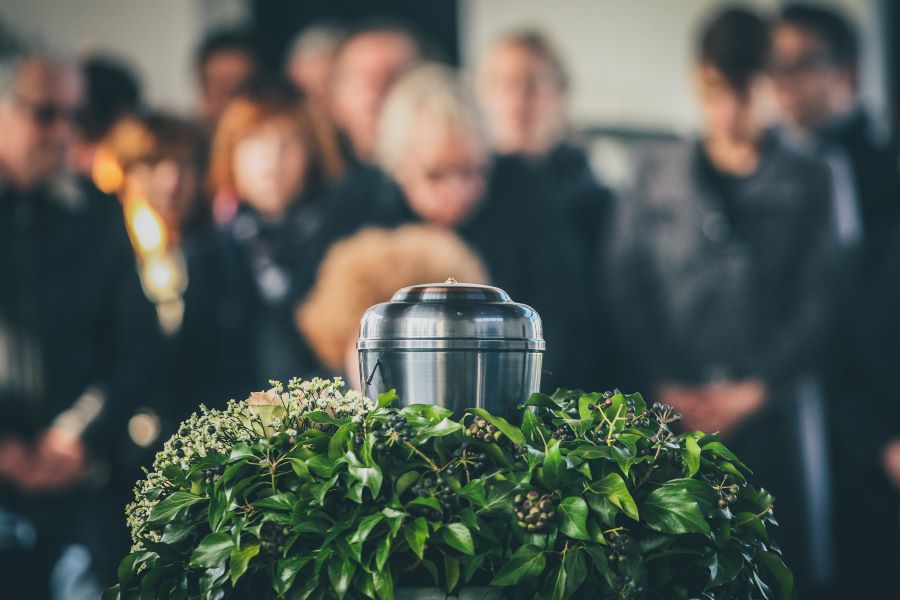Cremation Options in the UK: A Guide for Thoughtful Planning
Planning for end-of-life arrangements is a deeply personal journey that requires careful consideration. In the UK, cremation has become an increasingly popular choice, with various options available to suit different preferences, cultural practices, and budgets. This guide explores the different cremation services available, helping you make informed decisions during a sensitive time.

Cremation has steadily grown in popularity across the United Kingdom, now accounting for over 75% of all funerals. This shift reflects changing attitudes toward end-of-life arrangements, environmental considerations, and practical aspects such as cost and space limitations. Understanding the available options can help families make decisions that honor their loved ones while respecting personal wishes and circumstances.
Types of Cremation Services Available
Cremation services in the UK offer several distinct approaches to suit different needs. Traditional cremation typically involves a funeral service with the body present, followed by the cremation process. This option provides a familiar ceremony for mourners to gather and pay their respects. Direct cremation, which has gained popularity in recent years, is a simpler alternative where the body is cremated shortly after death without a formal service beforehand. This option separates the cremation from any memorial events, which can be held later at a time and place of the family’s choosing.
Private cremation allows family members to witness the cremation process, offering a more intimate experience for those who wish to be present for this final moment. Some facilities also offer green cremation options that focus on reducing environmental impact through more efficient processes and biodegradable containers. Religious cremation services cater to specific faith requirements, with many crematoria able to accommodate Hindu, Sikh, Buddhist, and other religious traditions that incorporate cremation into their funeral practices.
Costs and Budgeting for Cremation Services
The financial aspect of cremation is an important consideration for many families. Cremation costs in the UK vary significantly depending on the type of service chosen, location, and additional elements included. Direct cremation is typically the most affordable option, with prices ranging from £1,000 to £1,600. Traditional cremation services, which include a funeral ceremony, viewing, and more elaborate caskets, generally cost between £3,000 and £4,500.
Additional costs to consider include crematorium fees (which vary by region), doctor’s certification fees, celebrant or minister fees, and optional extras such as flowers, catering for wakes, or memorial items. Some families choose to set aside funds specifically for funeral arrangements through prepaid cremation plans, which can help lock in current prices and reduce the financial burden on loved ones later.
Memorial and Aftercare Options
After cremation, families have numerous meaningful ways to memorialize their loved ones. The cremated remains can be scattered in a garden of remembrance at the crematorium or at a personally significant location (with appropriate permissions). Many families choose to keep the ashes in an urn at home or divide them among family members using keepsake urns.
Burial of cremated remains is another option, requiring less space than traditional burial and often permitted in existing family graves. Memorial gardens, woodland burial grounds, and columbaria (structures designed to house urns) provide dedicated spaces for remembrance. Some families opt for more unique memorialization by incorporating ashes into jewelry, glass art, vinyl records, or even memorial diamonds created from the carbon in cremated remains.
Bereavement support is an essential aspect of aftercare, with many cremation providers offering counseling services or connections to grief support groups. These resources can help family members navigate the emotional journey that follows the loss of a loved one.
Choosing a Crematorium in the UK
The UK has over 300 crematoria, operated by both local authorities and private companies. When selecting a crematorium, consider factors such as location, facilities, availability, and whether the venue aligns with your needs regarding ceremony length, capacity, and religious or cultural accommodations. Many crematoria now offer enhanced services such as webcasting for remote attendees, multimedia tributes, and more flexible scheduling options.
Visiting potential venues beforehand can provide valuable insight into the atmosphere and facilities. Most crematorium staff are experienced in guiding families through the process and can answer specific questions about their services and capabilities. Some locations have particularly beautiful grounds or memorial gardens that may influence your decision if a permanent memorial at the crematorium is desired.
Comparison of UK Cremation Service Providers
| Provider | Service Type | Basic Package Cost | Notable Features |
|---|---|---|---|
| Dignity Funerals | Traditional & Direct | £1,495 - £3,545 | Nationwide coverage, comprehensive services |
| Co-op Funeralcare | Traditional & Direct | £1,395 - £3,295 | Ethical approach, prepayment plans |
| Pure Cremation | Direct only | £1,195 | Specialists in direct cremation |
| Memoria Crematoriums | Traditional | £3,150 - £4,200 | Modern facilities, extended service times |
| Simplicity Cremations | Direct & Simple | £995 - £1,695 | No-frills approach, online arrangements |
Prices, rates, or cost estimates mentioned in this article are based on the latest available information but may change over time. Independent research is advised before making financial decisions.
Legal and Administrative Considerations
Navigating the legal requirements surrounding cremation is an important part of the process. In the UK, cremation requires specific documentation, including the death certificate and cremation application forms that must be signed by the next of kin or executor. Two doctors must certify the cause of death before cremation can proceed, although this requirement was temporarily modified during the COVID-19 pandemic.
The person responsible for arranging the cremation must obtain the necessary permits and authorizations, which your chosen funeral director can typically assist with. It’s also worth noting that certain items cannot be cremated with the body for safety reasons, including pacemakers and some prosthetics, which must be removed beforehand.
Planning ahead by documenting wishes regarding cremation and memorial preferences can significantly ease the burden on family members during a difficult time. This can be done through a will, letter of wishes, or specific funeral planning documentation.
Cremation continues to evolve in the UK, with increasing emphasis on personalization, environmental considerations, and diverse cultural practices. By understanding the available options, costs, and processes involved, families can make arrangements that provide meaningful closure while honoring the unique life of their loved one.




